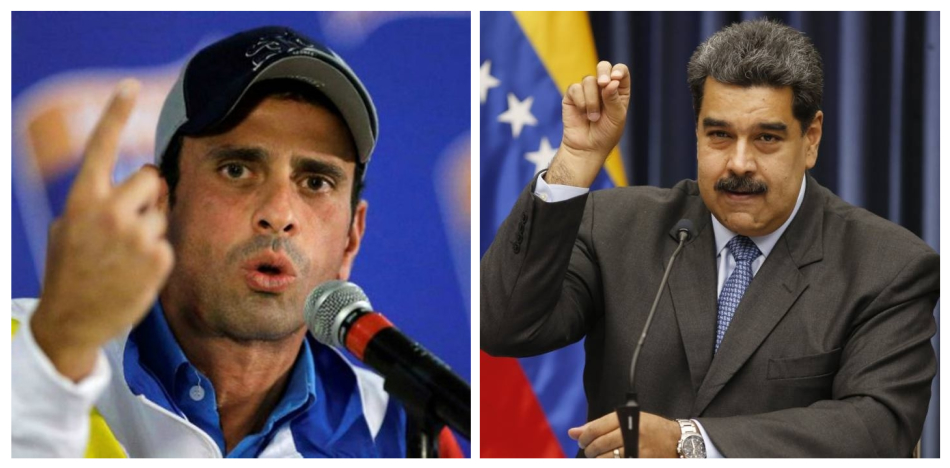
Spanish – The international spokesman of the Venezuelan regime, Jorge Arreaza, confirmed the reconciliation of former presidential candidate Henrique Capriles Radonski with Nicolás Maduro. This happened twice at the beginning of 2020.
In statements to El País, Arreaza described the process of the settlement between the Venezuelan regime and this faction of the opposition, which recently caused a fracture within the national coalition that supports the interim government of Juan Guaidó.
“The President himself (Maduro) met with this faction of the Venezuelan opposition at the beginning of the year on two occasions. Jorge Rodríguez, I think, has already lost count. And finally, the position of one group towards democracy and the other one to keep on with the gringo coup plan has been established, and, well, whatever is left is left. Important agreements were reached with that section of Henrique Capriles, Stalin González, and others, plus the members of the National Roundtable for Dialogue,” Arreaza told El País.
During the interview, the regime’s chancellor reiterated that the 110 pardons took place because of these conversations. This act had a political weight and cost for the Chavista base, which will be assumed to lead the opposition to the elections.
Capriles Radonski’s negotiation crusade
Arreaza’s statements emerge as one more reflection of the negotiations that have been criticized between the opposition and the Chavista party. What is striking are the dates alluded to by the regime’s chancellor. The negotiations were revealed publicly less than two months ago.
In fact, at the end of August, a movement away from the agenda promoted by the interim government of Juan Guaidó was revealed. Turkish Foreign Minister Mevlut Cavusoglu reported that he spoke with Henrique Capriles and Stalin González to facilitate negotiations with Nicolás Maduro.
However, Guaidó expressed his “absolute disregard for the negotiations carried out in a personal capacity between the regime of Nicolás Maduro and the leaders Henrique Capriles and Stalin González.”
In response, Capriles also spoke out after he was attacked on social media for these talks with the regime. He responded on Twitter: “Today, because of my personal efforts, we feel satisfied with the freedom of 110 political prisoners. My only interest is to defend Venezuelans and achieve the freedom of Venezuela.”
The lines of command in the interim government when it comes to commissions and delegates to deal with Chavismo have always been blurred. This time, they involved people who are not actively participating in the interim government but who have the political capital to sit down and negotiate with the government.
Strategies to legitimize 6-D elections
This is not the first evidence of negotiations with members of Chavismo and involves the name of a representative of the opposition. Accusations against Stalin González have been increasingly frequent. Omar González, a deputy of the legitimate Venezuelan National Assembly, was among those who have pointed out that Stalin González made a pact with the regime of Nicolás Maduro through a commission within the opposition coalition.
The Vente Venezuela representative pointed to Stalin González as the central figure in this agreement, where he was also offered a position that was at stake. Such a proposal was rejected outright since the negotiations were shared with the leaders of the PSUV (Partido Socialista Unido de Venezuela)
Stalin González was responsible for distancing himself from the proposals and actions carried out by the government of interim president Juan Guaidó. The leader has made it clear in his speech that opposition trenches defend a pragmatic reconciliation between the opposition and the regime, which will allow participation in this year’s elections.
Similarly, journalist Sebastiana Barráez reported that a part of the opposition is working on a plot for the parliamentary elections. This would benefit Maduro by putting him closer to taking control of all state powers.
Barráez also pointed out to Henrique Capriles and Stalin González in the negotiation that if the plan had gone through, it would have resulted in candidates for their fraudulent elections, as well as recognition by international organizations. Meanwhile, the opposition would have used the success of releasing some prisoners in the country as a flag of triumph.
 Versión Español
Versión Español













